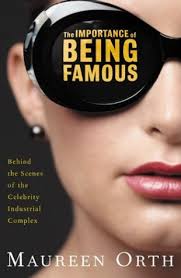Rick Schroder taps cultural resource for 'Black Cloud'
Robert W. Welkos
Los Angeles Times, Mar. 16, 2005 1
It was the waning days of Rick Schroder's run on "NYPD Blue." The blond-haired, blue-eyed former child actor faced an uncertain future. The meaty acting roles he craved rarely seemed to come his way. Worse, he and his wife were still struggling with the bottomless grief of a late-term miscarriage.Drawing on this reservoir of anger and pain, Schroder picked up a pen and his journal and began writing a screenplay, in longhand.Instead of being a release, the resulting story about an American Indian boxer -- "Black Cloud" -- kicked up more angst. "I got all these reasons why it wouldn't work," he recalled. Agents said it wasn't commercial enough. Studios turned him down again and again. Wondering if he could make the movie on his own, Schroder turned to an unlikely source for financing: Indian tribes.
The actor crisscrossed the country to visit about 50 tribes. "I showed them the screenplay and let them read it. My pitch was, 'Dances with Wolves' changed how I perceived Indian people. That movie showed them making love, laughing and raising kids, and it showed them as human beings in the first way that I had ever experienced that. My pitch was 'Black Cloud' would follow the same path."Schroder didn't know it then, but his request came at just the right time. The National Indian Gaming Association, a trade group representing 184 tribes nationwide, quietly has been embarking on an agenda of its own, encouraging members to invest some of those funds in the arts as a way to advance the language, culture and traditions of Indian people.Swayed by its realistic portrayal of Indian culture, tribes -- along with individual American Indian investors -- contributed nearly $1 million to cover production costs, and Schroder kicked in the rest.The result is a "Rocky"-like story set on an Indian reservation, written, produced and directed by Schroder, 34, who also appears on screen as the villain of the piece.
"Black Cloud" debuted in October in Arizona and Oklahoma City -- regions with large American Indian populations -- and opened in limited release Friday in Los Angeles, New York, Boston and four other cities. The movie has been screened for U.S. armed forces overseas, and has received honors at several film festivals, including the best picture audience award at this year's Phoenix Film Festival."We were enthused by his ability to tell a real story and (how he depicted) some of the struggles of everyday life," said association chairman Ernest Stevens Jr., an Oneida Indian from Wisconsin.
The first tribe Schroder contacted was the Chickasaw nation in Oklahoma. "I sat down to dinner with them and they said, 'Rick, we look at this project not as a financial investment, because we think it's risky. It's a movie and we don't know anything about it. But we look at this film as an opportunity to create good public relations for Indian people.'
Brian Campbell, chief executive officer of Chickasaw Enterprises, the tribe's business arm, which operates 17 casinos in Oklahoma, said they considered the risk only because they felt that Schroder was a "household name" with a good reputation. "One of the things that piqued our interest was he wanted to tell a story from the Native American point of view," he said. "There are a lot of negative stereotypes that have been reinforced in movies."But Campbell stressed that the Chickasaw aren't interested in getting into further forays into movie financing. "I don't want the floodgates to open and them pouring in here," he said of Hollywood.Glynn Crooks, vice chairman of the Shakopee Meewakanton Sioux in Prior Lake, Minn., which saw some of its members invest in the film, praised Schroder for taking a gamble on "Black Cloud.""He gave us the script and asked us what we thought," Crooks recalled.Crooks said he invested some of his own money in the film, but that the tribe itself ultimately did not. "Our members just decided as a tribe not to do it," he said, "but we encouraged anyone who wanted to, to do it. A lot of them came forward."He must have been inspired by something to do that," Crooks said of Schroder. "That's something we appreciate. . . . I'm sure there will be a lot of critics who say, 'What does Rick know about Indians?' But I saw the movie and I think it's a great movie with a great story line."It's a far cry from the way Hollywood traditionally has treated Indians and their stories. Tribes have never forgiven the industry for shamelessly casting whites as Indians. Jeff Chandler played Cochise in "Broken Arrow" and Burt Lancaster played Massai, the last Apache warrior captured, in "Apache," and also the American Indian athlete title character in "Jim Thorpe -- All-American."Said Schroder bluntly: "If the Indian people want stories written about themselves, how they want them told, they are going to have to make them, they're going to have to finance them. If you let Hollywood do it, Hollywood is going to get it wrong most of the time."
Schroder said he did not give tribes any script approval that would have compromised his artistic integrity. But there were a few concessions. He agreed to run on the film's end credits a message about Indian sovereignty that was written by two Indian gaming officials. It reads: "This film is dedicated to tribal sovereignty and to the courageous Indian leaders of long ago who fought and died to preserve the right of self-government for Indian people."There is also a scene in the film in which a younger tribal official informs a community gathering that they have been invited to visit another tribe's casino to see what gaming has done for them. An elderly Navajo in the audience stands up and protests. "I say 'no' to casinos," he says. "The Navajo can prosper only in righteousness."Schroder said his investors asked him to "clarify" the position taken by the younger tribal official, who in the final version of the film tells the elderly man: "Where is it written that being sick, poor and uneducated are better for our souls?"
Schroder said he wrote the movie "out of necessity.""There is so much competition out there and there are only so many good roles to go around. . . . I'm trying to make my own opportunities," he said.And, he said, he was forced to find alternative financing because Hollywood was skeptical of the script."(They said) it was a 'niche film.'" He tried explaining that it wasn't a movie about Indians but about human beings. "This story could have been told about a black kid in Watts, an Irish kid in Ireland or a Mexican kid in Mexico. This story is universal. It's about anybody who has ever felt like an underdog, and we've all felt like an underdog."Schroder said the story is loosely based on a real-life Navajo named Cal Bahe, who had overcome alcoholism through boxing as a young man. Bahe ran the Damon-Bahe Boxing Club in Chinle, Ariz., taking youths into the gym and giving them something to do besides falling into gangs or alcohol. The gym served as a backdrop for the film.But in truth, the script wasn't so much a story about an angry American Indian boxer as it was Schroder living through the character.
"Black Cloud is me," Schroder said. "I needed to release some anger. I wanted to write a role that I would die to have and tell a story about overcoming anger and overcoming frustration. I was born with not anger as much as emotion. It's a deep, intense emotion. I've always had it, but I don't know why. I had a great childhood and I don't know where it comes from. It's just the way I am."With its sweeping photography set in John Ford country in Monument Valley, Ariz., "Black Cloud" features a largely American Indian cast, including two personable young actors in lead roles -- Eddie Spears, a Lakota Sioux, as Black Cloud, and Julia Jones, who is part Cherokee, as his girlfriend, Sammi. Rounding out the cast is country singer Tim McGraw, in his film debut, as Sheriff Powers.Schroder plays a rodeo tough named Eddie who fathered a son with Sammi and takes no responsibility for raising the toddler. It's a gritty role light years removed from Schroder's childhood stint as rich kid Ricky Stratton on the long-running 1980s NBC sitcom "Silver Spoons."In one scene from his film, for example, Schroder joins a gang of whites who corner Black Cloud in a restroom stall. Schroder's character uses a broken bottle to viciously attack a young Navajo who comes to Black Cloud's rescue.Although the Navajo nation did not invest in the film, it did provide Schroder with something equally important: its starkly beautiful reservation straddling four Southwestern states. Schroder employed residents of the reservation as extras and hired tribal members as advisers. He was also given rare access to be able to film inside Canyon de Chelly, an area sacred to the Navajo and home to archeological sites and sheer cliffs rising 1,000 feet.Seth Willenson, a Hollywood marketing veteran who is handling the theatrical distribution of "Black Cloud," said the movie is being released on a "territory by territory" basis, much like movies used to released before the era of 3,000-print opening weekends."To me, this movie is a combination of 'Rocky' and 'Junior Bonner,'" Willenson said. "Rick has created a kind of contemporary western combined with a breakout boxing movie."
Fans of "NYPD Blue" were surprised in 1998 when Schroder was tapped to replace their beloved Jimmy Smits.Schroder had shown plenty of acting promise -- sobbing his eyes out over the death of his prizefighter dad, played by Jon Voight, in 1979's "The Champ," or his follow-up success in 1980's "The Earthling," appearing opposite William Holden. But Schroder was best known for being the star of "Silver Spoons.""NYPD Blue" fans couldn't envision the boyish-looking Schroder jumping into the stark police drama, but he quickly won praise with his portrayal of Det. Danny Sorenson.Schroder left the show at the end of the 2001 season. He said there were a number of factors for his decision. For one, he thought his character had been "pushed all the way until there was no coming back."The miscarriage was another."It was a little boy," he recalled. "That was really hard. You always hear about people going through miscarriages and you never understand what one is like unless you go through it. What you lose is, you lose all the potential of what that life would have held. . . . I think I might have taken it harder than my wife, actually. That happened right at the beginning of my last season."Schroder today resides in Scottsdale, Ariz., with his wife, Andrea, and their four children, but he spends eight to 10 weeks a year on his ranch in Colorado where, he learned after purchasing the property, his boyhood hero John Wayne had vacationed years before.For his next project, Schroder plans to direct a feature film he did not write called "The Principle Wife," a story set in the 1870s about Mormons and polygamy.Schroder, who is Mormon, is meeting with fellow Mormons about financing the movie."For independent films, you've got to find out who has an interest in seeing the movie you make," he said. "I think this is the prototype of future films. To think about who has an interest in your film and go to them for financing. It seemed to work the first time, so I hope it works the second time."
-











No comments:
Post a Comment